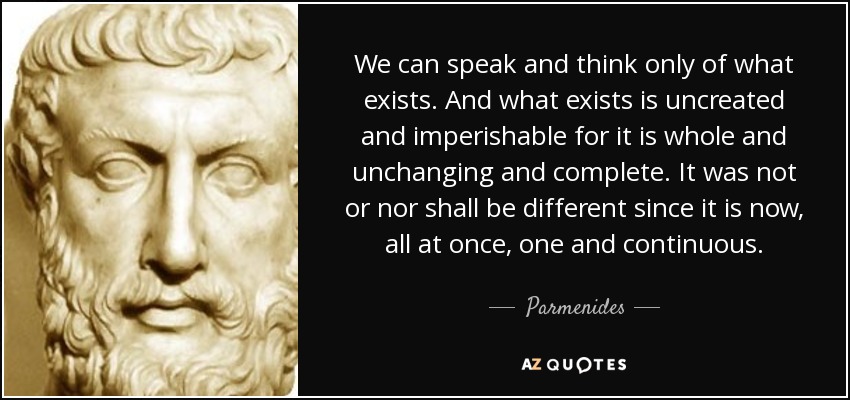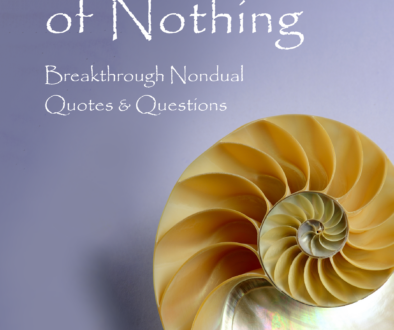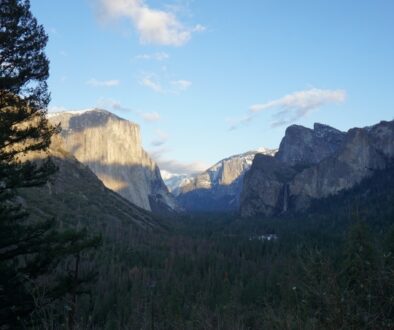Wisdom from Parmenides

Parmenides of Elea (/pɑːrˈmɛnᵻdiːz əv ˈɛliə/; late sixth or early fifth century BC) was a pre-Socratic Greek philosopher from Elea in Magnaraecia (Greater Greece, including Southern Italy). He was the founder of the Eleatic school of philosophy. The single known work of Parmenides is a poem, On Nature, which has survived only in fragmentary form. In this poem, Parmenides describes two views of reality. In “the way of truth” (a part of the poem), he explains how reality (coined as “what-is”) is one: change is impossible, and existence is timeless, uniform, necessary, and unchanging. In “the way of opinion,” he explains the world of appearances, in which one’s sensory faculties lead to conceptions which are false and deceitful.
(An excellent book about him is Parmenides and the Way of Truth, by Richard Geldard, who has a series of books regarding what you and I would term the nondual philosophy, expounded by numerous ancient Greek philosophers.)
Thanks to Bob.



